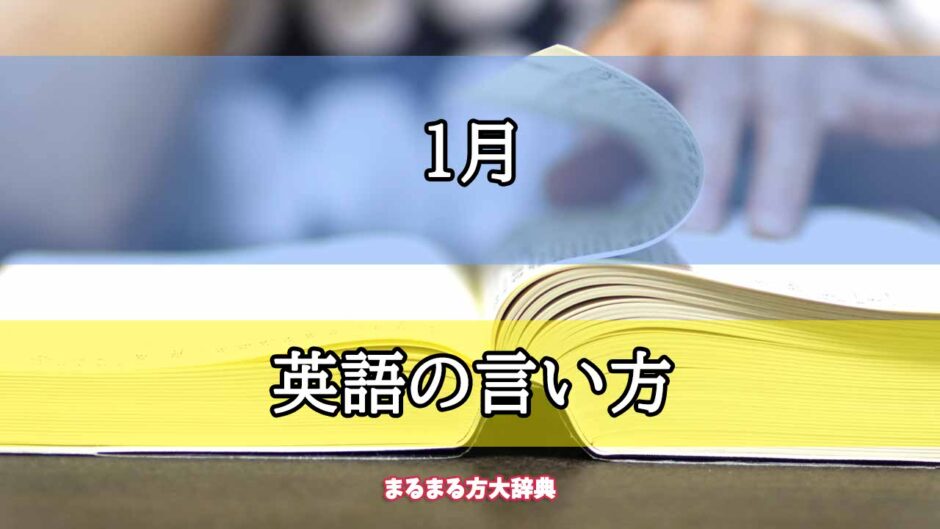1月は英語では「January」と言います。
この言葉は世界中で使われており、特に英語圏では日常的に使われています。
例えば、英語で「1月1日」と言いたい場合は、「January 1st」と表現します。
また、「1月は寒いですね」と言いたい場合は、「January is cold, isn’t it?」と言うことができます。
さらに詳しく紹介させていただきます。
1月の英語の言い方の例文と解説
1. How to say January in English
In English, we say January to refer to the first month of the year. This word is commonly used in various contexts, such as when talking about dates, planning events, or simply discussing the time of year. For example, you can use it in a sentence like I’m planning a trip to Hawaii in January. Remember to capitalize the first letter when writing the word January in English.
2. Example sentences using January
Here are a few example sentences to help you understand how to use January in English:- My birthday is in January, so I always have a winter-themed party.- January is known for its cold weather and snowfall in many countries.- We have our annual company meeting in January to discuss our goals for the year ahead.- I’m starting my new job in January, and I’m excited for the fresh start.As you can see, January is a versatile word that can be used in various situations to talk about events, weather, or personal experiences. It’s essential to familiarize yourself with the pronunciation and spelling of this word for effective communication in English.
3. The origin and significance of the word January
The word January has its origins in Latin. It comes from the Latin word ianuarius, which was named after the Roman god Janus. Janus is the god of beginnings, transitions, and doorways, making January a fitting name for the first month of the year. In ancient Roman times, January was a time for new beginnings and setting intentions for the upcoming year.Understanding the etymology and historical significance of words can add depth to our language knowledge and help us appreciate the cultural context behind them. So next time you say January in English, you can also reflect on its connection to the Roman god Janus and the idea of fresh starts.These examples and explanations should give you a better understanding of how to talk about January in English. Remember to practice using this word in various contexts to improve your language skills.
「1月」の英語の言い方の注意点と例文
1. 1月の英語表記の注意点
1月を英語で表現する際、注意が必要な点があります。
まず、英語では「January」と表記します。
この際、Jの音は「ジェイ」と発音され、aの音は「エイ」と発音されます。
さらに、最初のnの音は日本語の「ん」とは異なり、「ニュ」と発音します。
このような注意点を念頭に置いて、1月を英語で表現することが重要です。
2. 1月の英語表記の例文
以下にいくつかの例文を挙げますので、1月を英語で表現したい場合に参考にしてください。
– My birthday is in January.(私の誕生日は1月です。
)- I’m planning a trip to Japan in January.(1月に日本への旅行を計画しています。
)- The new semester starts in January.(新しい学期は1月に始まります。
)これらの例文は、日常会話や文章で使われる一般的な表現です。
1月に関する予定や出来事を伝える際に役立つ表現ですので、覚えておくと便利かもしれません。
3. まとめ
1月を英語で表現する際の注意点と例文を紹介しました。
英語の「January」という表現に慣れるためにも、積極的に使ってみることをおすすめします。
また、文脈や状況に合わせて適切な表現を選ぶことも重要です。
1月に関する情報や話題を英語で話す機会があれば、ぜひこれらの表現を活用してみてください。
まとめ:「1月」の英語の言い方
1月の英語の言い方は、Januaryです。
この言葉はグレゴリオ暦の最初の月を表しています。
冬が本格化し、新年の幕開けとなるこの月は、多くの人々が抱く希望と新たな始まりの象徴として大切な存在です。
Januaryという言葉には、誇りや希望、そして未来への期待が込められています。
新たな年になると、多くの人々が新たな目標や計画をたてることがあります。
1月は、その計画を始めるための良いスタート地点として捉えられることがあります。
また、1月は冬の真っ只中であり、寒さが一層厳しくなる時期でもあります。
なかなか出かける機会も減ってしまいますが、家族や友人とのぬくもりを感じる時間を過ごすことも大切です。
さらに、1月には多くの文化的なイベントや祝日もあります。
例えば、新年の初詣や、大晦日に行われるカウントダウンパーティーなどがあります。
これらのイベントを通じて、人々は一体感を持ち、新たな年を祝います。
1月は、新たなスタートと共に、冬の寒さや困難に立ち向かう力も必要とされる月です。
しかし、新年の始まりという希望に溢れた時期でもあります。
一年のスタートを切る1月を大切にし、自分自身や周囲の人々と共に、目標に向かって一歩ずつ進んでいきましょう。








